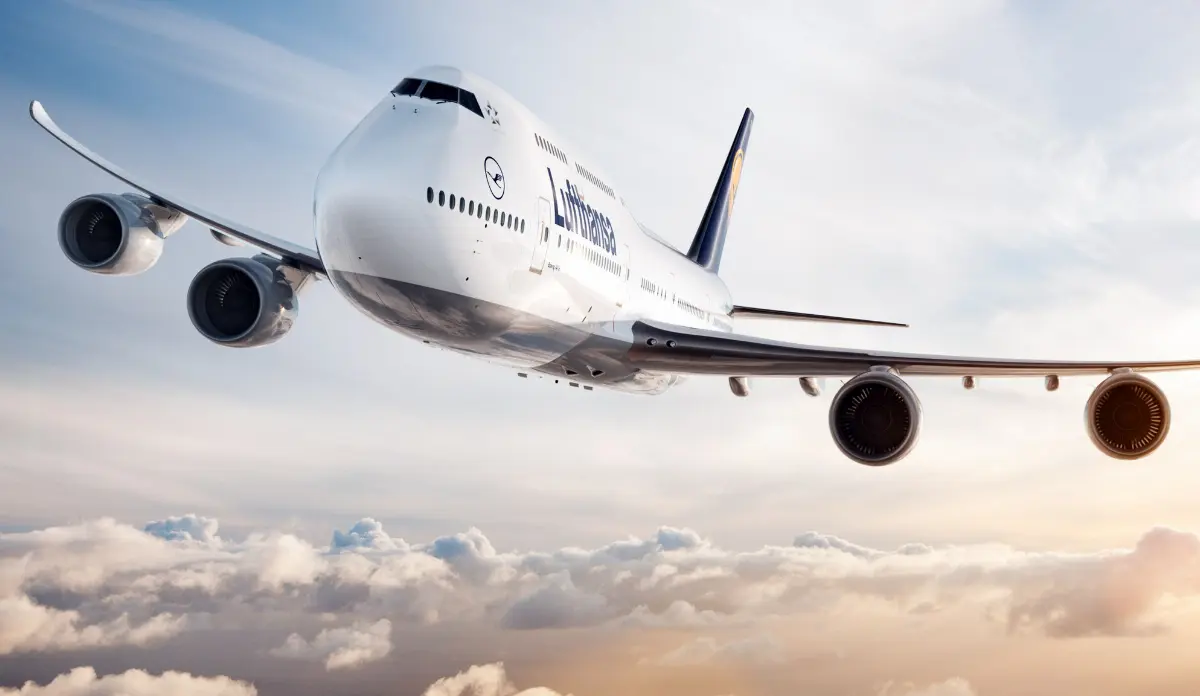
Aci Europe congress: airport industry needs resilience and future preparedness
Today the speech of the general director Jankovec at the general assembly of the association

The 35th Annual Congress and general assembly of Aci Europe (Airports Council International Europe), the organisation representing European airports, will take place in Athens from 18 to 20 June. Today, director general Olivier Jankovec focused his address on the state of the airport industry on the imperatives of resilience and future-proofing, "as the airport sector is being redefined by the complex interplay of geopolitical tensions, economic challenges, technological disruptions, environmental concerns and growing competitive pressures", he explained in a statement today.
New normal and growing competitive pressures
As the press release states, although passenger traffic in the European airport network has finally surpassed pre-pandemic (2019) levels in 2024 and air transport demand remains largely resilient so far, performance gaps between national and individual airport markets are the new normal. This reflects the impact of both structural changes in the European aviation market and geopolitics. Jankovec said: "Airport operating conditions have been fundamentally restructured in the post-pandemic period. The predominance of leisure, family and friends (Vfr) and hybrid demand, combined with the impressive but selective expansion of ultra-low-cost carriers and the relative retreat of consolidating scheduled carriers, are creating new competitive pressures - which Ryanair and even the Lufthansa Group are openly talking about. The fact that only 56% of European airports have recovered pre-pandemic passenger volumes and that 67% of intra-European routes are operated under a monopoly by a single airline clearly disproves the myth that airports enjoy significant market power".
Improved financial results
"Competitive pressures continue to impact airports' financial performance, particularly on the revenue front. Although aeronautical revenue from user charges reached €32 billion last year, it was still 1% below pre-pandemic (2019) levels when adjusted for inflation. Overall costs reached €41.1 billion, up +24% compared to 2019, with materials and supplies, maintenance and energy/utilities costs increasing by +117%, +49% and +37% per passenger respectively.
However, European airports achieved a net profit of €10.5 billion in 2024 - a positive increase compared to the previous year (€7.7 billion). This improvement was driven by continued cost control where possible, the relatively strong performance of non-aeronautical revenues and postponed or missed investments, which during the recovery from Covid were €16.4 billion below planned levels.
Airport Debt and Investment for Europe
The director general however, sounded the alarm about the burden of accumulated debt and the need to relaunch investments: 'The debt of European airports - largely accumulated during the pandemic to survive - still amounts to €135 billion, an increase of +27% compared to 2019. But at the same time, many airports must now embark on a new investment cycle. It is about making up ground to cope with the growing operational pressures resulting from the recovery of traffic, but also about adapting to the new context. This means investing in the modernization of existing infrastructure, strengthening operational resilience at all levels and, of course, in sustainability, as well as expanding capacity where necessary.' He added: 'Overall, our investment needs amount to €360 billion between now and 2040 and it is clear that enabling these investments must be part of the European competitiveness agenda, as recognised by the Draghi report. This is a message that our national regulators need to hear loud and clear when it comes to airport charges and the ‘user pays’ principle, and which also highlights the urgent need for regulatory stability at EU level.
Paradigm Shifts and the Challenge of Decoupling
Also according to the press release, speaking about geopolitics, geoeconomics and climate change, he underlined how these paradigm shifts are exacerbating risks and challenges:
'What we are seeing is a convergence of geopolitical, physical and cyber threats, along with economic uncertainty and accelerating climate change. This means airports need to prepare for greater traffic volatility, fragmentation and slower overall growth than we have been used to in the past decades.'
A key factor in the structural slowdown in passenger growth in the coming years will be the cost of decarbonising European aviation, which has risen from €800 billion to €1.3 trillion by 2021.
This increase will inevitably increase the cost of flying and slow down the average annual growth in demand from +2% to +1.4%. This presents a new challenge for European airports: to decouple their economic sustainability and ability to continue investing from the dynamic growth of traffic.
Jankovec stressed the need to rethink the fundamentals of the airport business model, citing ongoing work by the Boston Consulting Group (Bcg) on this issue: 'Our economic model and ability to invest remain dependent on dynamic volume growth, as market forces and regulators put downward pressure on our fares, which are set in advance and without the possibility of dynamic pricing, unlike airline tickets. However, slower traffic growth and inflationary cost pressures will require increasing airport unit revenues, including fares. This will be a prerequisite for Europe to continue to modernise and develop airport infrastructure and thus safeguard its competitiveness.'
Presenting the initial findings of a study on new pathways to sustainable value creation for European airports at the event, Gabriele Ferri, managing director and partner of the Boston Consulting Group (Bcg), said: ‘After years of sustained growth, the European airport sector is now facing increasingly strong headwinds. Slowing traffic growth, increasing operational and capital pressures, declining unit revenues and increasingly stringent environmental and regulatory restrictions are reshaping the landscape.’ ‘To remain attractive to investors, airports need to fundamentally rethink value creation, focusing more on diversifying revenue sources while ensuring unit revenues support investment, improving infrastructure quality and sustainability, and taking a more active role in coordinating the entire ecosystem -including airlines, retailers and regulators- to unlock long-term sustainable value.".
On this topic, see also the article published by AVIONEWS.
AVIONEWS - World Aeronautical Press Agency